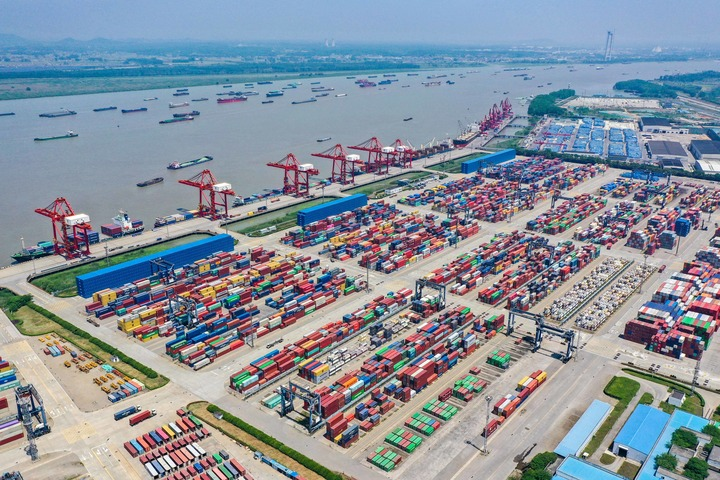BEIJING, May 16 (Xinhua) -- China's economy is on track to recovery despite contractions in some indicators in April, as its fundamentals remain resilient and pro-growth policies help cushion the impact of the pandemic.
Value-added industrial output, measuring factory activities, went up 4 percent year on year during the first four months, data from the National Bureau of Statistics (NBS) showed on Monday.
Fixed-asset investment jumped 6.8 percent from a year ago, with investment in high-tech industries soaring 22 percent.
Weighed down by the Omicron outbreak, retail sales of consumer goods, a significant indicator of China's consumption strength, went down 0.2 percent year on year in the January-April period.
The average surveyed urban unemployment rate stood at 5.7 percent during the first four months, with some 4.06 million jobs created.
The country's economy took a hit from the domestic resurgence of COVID-19 cases in April, but the impacts are "short-lived and external," said Fu Linghui, spokesperson for the NBS.
With a super-large market, complete industrial and supply chains and huge domestic demand, the world's second-largest economy has the resilience to ward off all kinds of challenges, he said.
POLICY MIX
China has taken various measures to ease the burden that COVID-19 has placed on businesses.
Major state-owned banks are expected to increase inclusive loans for micro and small firms by 1.6 trillion yuan (about 235.74 billion U.S. dollars) this year to step up financial support for businesses, according to a State Council executive meeting earlier this month.
The meeting also called on banks to renew loans, extend and adjust repayment arrangements, and waive default interest for micro, small and medium-sized enterprises and self-employed households as appropriate.
The country has also unveiled measures including tax refunds and fee cuts, the deferral of social security contribution payments, and the smoothing of industrial and supply chains to shore up market entities.
Looking ahead, China will strengthen macro policy adjustment and mitigate the pandemic's impact to ensure the economy moves forward at a healthy pace, Fu said.
REOPENING BUSINESS
With the pandemic coming under control, production and people's lives are returning to normal in an increasing number of cities.
On Monday, China's financial hub Shanghai gradually began reopening businesses such as shopping malls, vegetable markets and hair salons.
To date, nearly half of Shanghai's 9,000 major industrial enterprises with an annual main business revenue of at least 20 million yuan have resumed work.
"China's economy is expected to improve in May with the accelerating resumption of work and production in Shanghai and Jilin as well as the implementation of pro-growth measures," Fu noted.




 A single purchase
A single purchase









